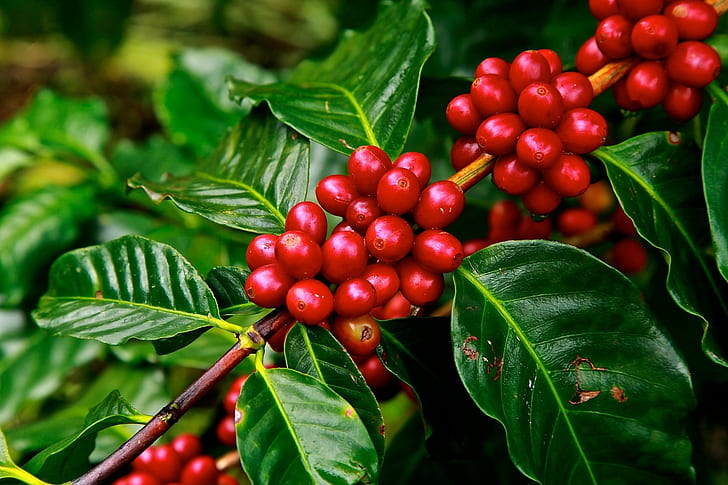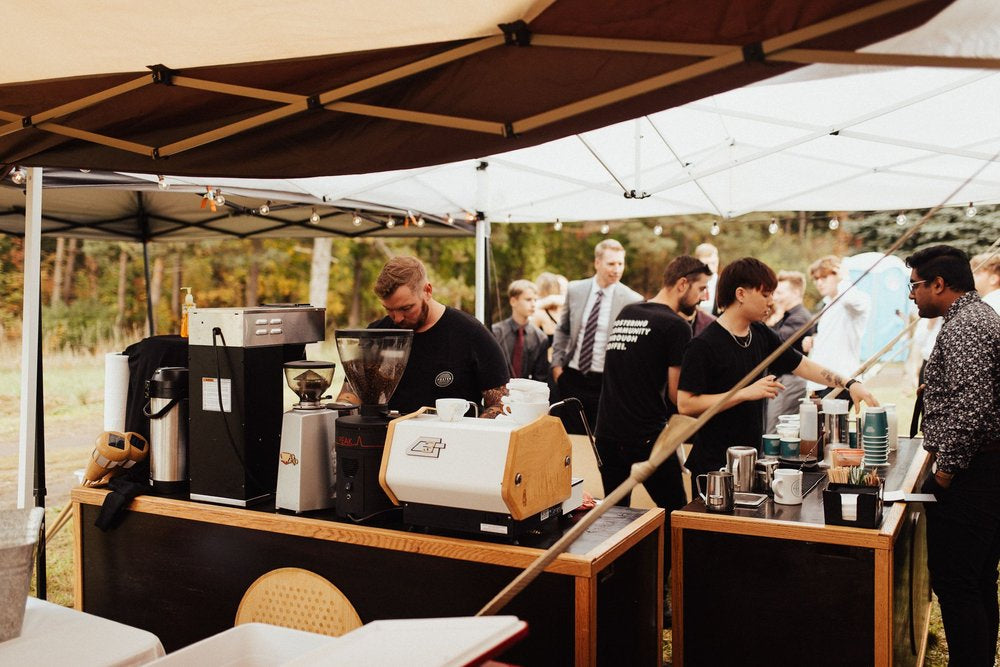Single Origin vs. Microlot vs.Blends: Your Ultimate Guide to Coffee Types

Introduction:
Welcome, coffee aficionados and curious connoisseurs! Have you ever wondered what sets single-origin coffee apart or why there's so much buzz about microlots? The world of coffee is a vast and flavorful landscape, with a rich tapestry of options to explore. In this guide, we'll delve into the key coffee types, from single origins to blends and everything in between. Whether you're a seasoned coffee pro or just starting your caffeine adventures, this article will equip you with the knowledge to confidently navigate the coffee aisle and discover your perfect brew.
Single Origin Coffee: A Taste of Terroir

What is Single Origin Coffee?
Single-origin coffee is like a passport to a specific place. It refers to coffee beans that are sourced from a single geographic region, country, or even a particular farm or estate. This could be as broad as "Ethiopian coffee" or as specific as "Yirgacheffe, Ethiopia." Just as wine reflects the unique characteristics of its vineyard, single-origin coffee captures the essence of its origin – the distinct flavors, aromas, and nuances that arise from a particular region's soil, climate, and growing conditions.
Why Choose Single Origin?
-
Distinct Flavor Profiles: Each region boasts unique characteristics, resulting in diverse flavor profiles. Expect a symphony of tastes from bright and citrusy Ethiopian beans to earthy and chocolatey Sumatran varieties.
-
Traceability and Transparency: Single-origin coffees often come with detailed information about the region, processing methods, and the people who produced them. This transparency allows you to connect with the coffee's story and make more informed choices.
-
Seasonal Variety: Coffee is a seasonal crop, so single origins offer a fascinating rotation of flavors throughout the year. This means you can explore new taste experiences as the seasons change.
-
Supporting Farmers: Choosing single origin often means supporting small farmers and sustainable practices, contributing to a more equitable and ethical coffee industry.
Microlot Coffee: The Jewel of a Single Farm

What is Microlot Coffee?
Microlot coffee is the crème de la crème of single origins. It refers to a small batch of coffee beans harvested from a specific plot of land within a single farm. This plot is often chosen for its unique microclimate, soil composition, or varietal of coffee plant, resulting in exceptionally distinct and nuanced flavors.
Why Choose Microlot?
-
Unparalleled Flavor Nuances: Microlots are renowned for their exceptional flavor complexity. Because the beans are grown in a highly specific environment, they can exhibit unique characteristics and subtle nuances that are not found in larger batches.
-
Limited Availability: Microlots are produced in small quantities, making them a rare and exclusive treat for coffee connoisseurs. They offer a chance to experience flavors that are truly one-of-a-kind.
-
Direct Connection to the Farm: Choosing microlot coffee often means supporting a specific farmer and their unique approach to coffee cultivation. This personal connection adds depth and meaning to your coffee experience.
Coffee Blends: The Art of Harmony

What are Coffee Blends?
Coffee blends are the result of a skillful combination of beans from different origins, often with varying roast levels. Roasters meticulously select and blend beans to achieve a specific flavor profile, balancing acidity, body, and aroma to create a harmonious and well-rounded coffee experience.
Why Choose Blends?
-
Consistent Flavor: Blends are known for their consistency. Roasters carefully craft them to deliver a reliable and predictable flavor profile with every cup.
-
Versatility: Blends can be tailored for different brewing methods or taste preferences. Some are designed for espresso, others for drip brewing, and many offer a range of roast levels to suit diverse tastes.
-
Complexity: While single origins showcase the distinct character of a specific region, blends offer a symphony of flavors, where the individual characteristics of each bean complement and enhance one another.
-
Affordability: Blends are often more budget-friendly than single-origin or microlot coffees because they allow roasters to utilize a wider range of beans.
Other Common Coffee Types:
- Decaffeinated Coffee: Coffee that has had most of its caffeine removed, perfect for those sensitive to caffeine. Learn about the differences between Ethyl Acetate and Mountain Water process.
- Organic Coffee: Grown without synthetic pesticides or fertilizers, appealing to environmentally conscious consumers. Learn about the. differences between Organic, Fair Trade, and Direct Trade.
- Fair Trade Coffee: Certified to ensure farmers receive fair prices for their beans, promoting social and economic justice.
Choosing Your Perfect Cup:
With so many delicious options, how do you find the right coffee for you?
-
Explore Your Preferences: Do you lean towards bright and fruity notes or rich and chocolatey flavors? Do you seek a complex coffee adventure or a more familiar and consistent taste?
-
Experiment: Try different origins, blends, and brewing methods to discover what delights your palate. Don't hesitate to step outside your comfort zone and explore new possibilities.
-
Ask the Experts: Visit your local coffee shop or chat with a barista. They can offer valuable insights and recommendations based on your individual preferences.
Conclusion:
The world of coffee is a vast and flavorful landscape, with each type offering a unique and enriching experience. Whether you savor the nuanced flavors of a single origin, the complexity of a blend, or the extraordinary character of a microlot coffee, there's a perfect cup out there for everyone. So, explore, experiment, and savor the joys of craft coffee – you might just uncover your new favorite brew!
Explore Single Origin Coffees
Explore Blend Coffee
Explore Specialty Releases
- Tags: Education



